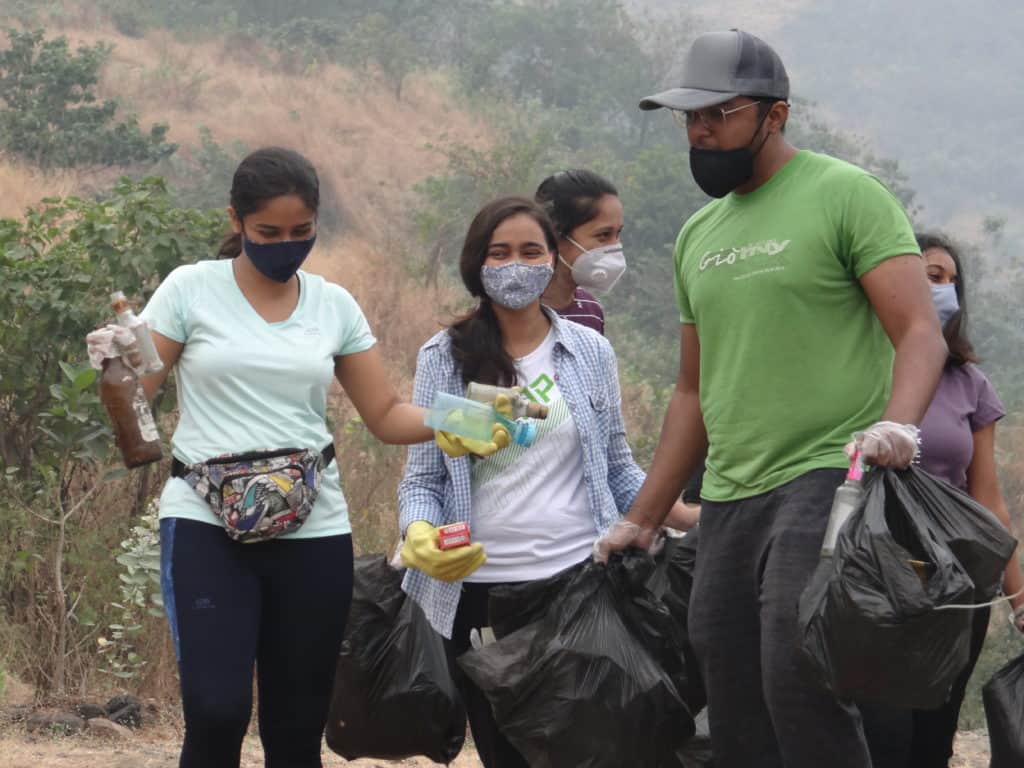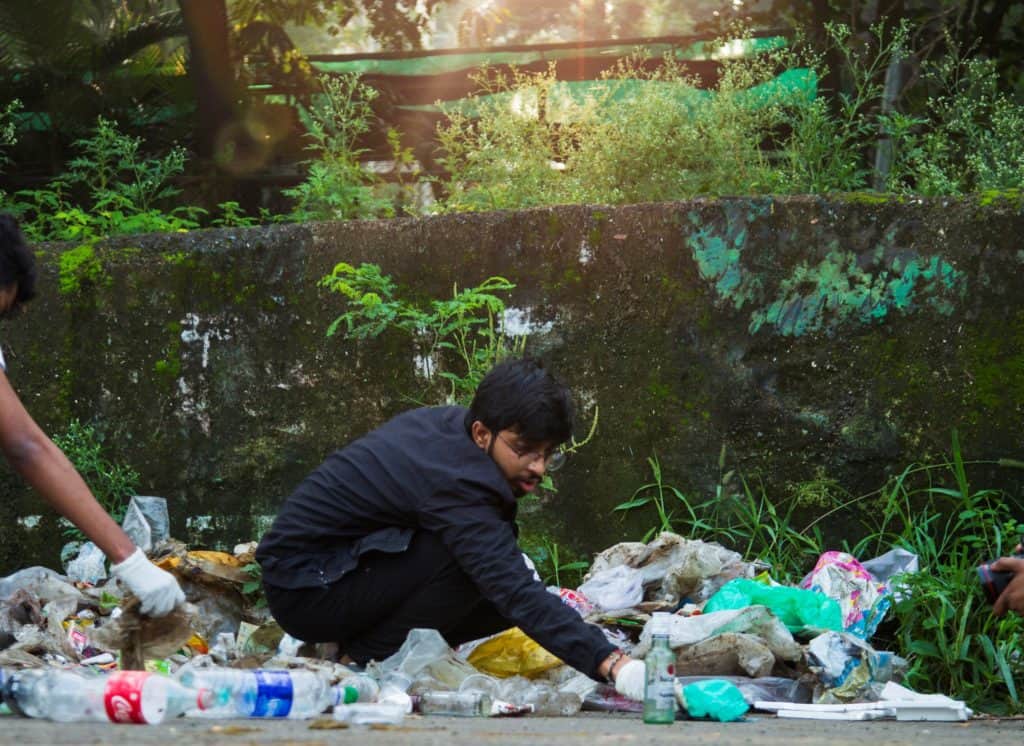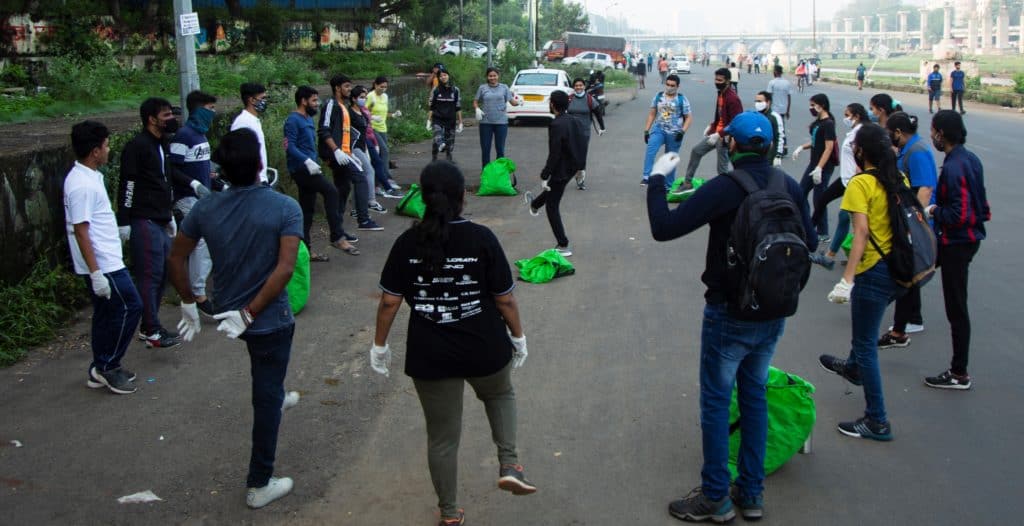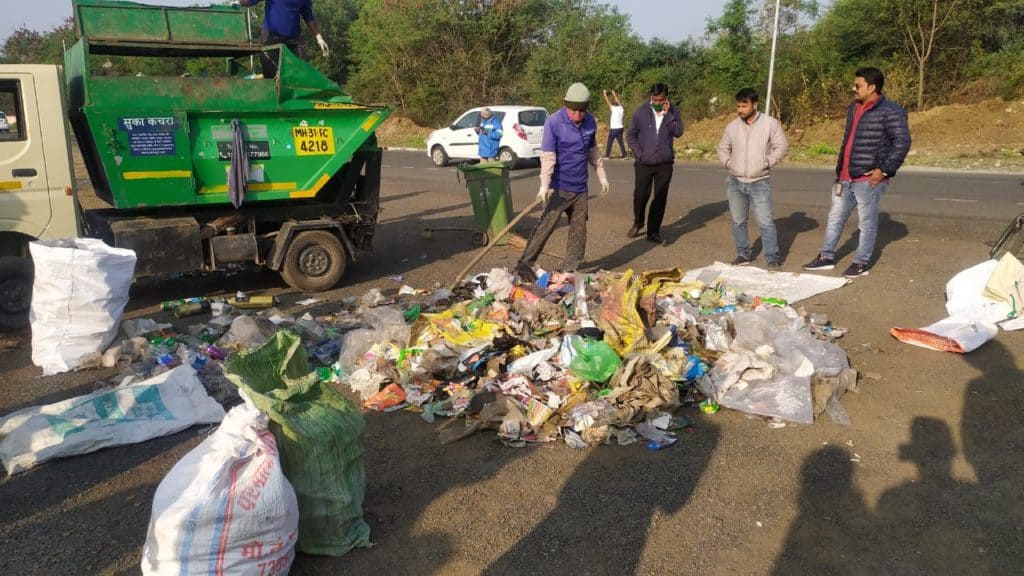When 25-year-old Vivek Gurav, working in an IT company in Pune, came across a video of Swedish native Erik Ahlström on YouTube, it struck him that this might provide a way of reducing plastic waste and be a way to bring youth to become volunteers of change.
“I come from a small village near Kolhapur and I used to swim in the river flowing near my village,” recalls Vivek. In Pune, it saddened him to see the city’s water bodies covered in garbage and plastic waste. “While a student of MIT institute of Computer Engineering in Alandi, Pune, I was aghast to see garbage littering streets, and no one caring about it. So when I watched this Swede talk about Plogging, I thought of doing it on my own. It is good exercise too, while giving you an opportunity to help keep your city clean.”
The word Plogging is a combination of jogging and ‘plocka upp’, a Swedish term which means pick up. The idea, which took hold in Sweden in 2016, gained momentum across the world in 2018 across the world and Vivek took to it in Pune in 2019 on Gandhi Jayanti. Now, plogging is gaining followers in Mumbai, Nashik and Nagpur too.
“Waste management is one of the biggest issues the city is facing, which is accepted by the local municipal corporation,” says Vivek. “But the responsibility to solve this problem does not lie only with the authorities but also citizens, who should be responsible for disposing of waste in the right way.”
Trash banks
Vivek realized the importance of segregation and of removing plastic out of the domestic waste during the flash floods in 2019 when water entered homes near the canal, where drainages were blocked due to plastic bottles and packets.
“I am on a mission to address these issues and involve city residents to fight the growing plastic menace,” said Vivek, who founded Pune Ploggers with a handful of friends as volunteers. Now, at the start of 2021, the organisation he founded has more than 500 dedicated volunteers.
Plogging was mentioned by Prime Minister of India, Narendra Modi in his radio programme Maan Ki Baat, and volunteer groups in many Indian cities are now into it.
The lockdown brought all activity, including plogging, to a standstill. But that did not stop Vivek and his volunteers from his mission. “Garbage was still getting accumulated and with less manpower with the Solid Waste Management team, plastic bags, snack packets and wrappers could be seen strewn on the streets.”
He and his team of volunteers decided to install trash banks in the city’s residential societies to collect the plastic waste for recycling. “We are recycling the plastic waste and giving it to the needy,” says Vivek. “I began creating eco-bricks with a target of making one lakh such bricks. Since most of us were on work from home mode, I thought of introducing volunteers and those eager to learn how to reutilize plastic covers, wrappers and stuff them into plastic bottles thus giving them volume and strength to be used as bricks for building temporary structure in slums”.
He has also roped in people in Mumbai, Chennai and Bengaluru to help him reach his goal of one lakh eco-bricks and keep 90,000 tonnes of plastic from going into landfills.
Others too are doing their bit. Like Pranav Gunjal, co-founder, Youth Green Club who has been recycling plastic milk pouches. “We at Youth Green Club are trying to recycle this plastic so that less plastic ends up in landfills,” says Pranav.
Pranav’s group is also encouraging planting of saplings in exchange of milk pouches. “Our resolution for 2021 is to create an ecosystem of native tree species in areas around Pune,” says Pranav. “But plastic waste has proved to be a big hurdle in this plan since all areas we found suitable for plantations were littered with a lot of trash. This is a small effort from our team of 200 members who clean up trash at these locations as well as tackle household plastic waste.”
Want to start plogging too?
The Swedish fitness trend that combines jogging while picking up trash, has got several other variations of activity derived from it, such as “taking a palk” (plogging walk) or a “pike” (plogging hike).
The website www.plogga.se says that all you need for plogging is a pair of gloves and a recyclable bag.
Make the drive interesting, choose a plogging route that you know is heavily littered, but still considered safe.
It is important to always have safety gear, gloves and hand sanitizer, and recyclable trash bags.
Always helps to click photos and share your plogging activity via social media to create awareness and involve more of your friends, families or even strangers.
Chalk of shame
This effort attracted Mumbai resident Rashmi Singh who started plogging in November. “I have been trekking to Kharghar hills since I was 14 years old and over the years I observed the place that I loved getting degraded due to increased human intervention,” said Rashmi.
As the years passed, there was more waste than plants and trees on the hills and Rashmi felt deeply about it. “My personal connection with the hills urged me to take action and encourage the people living there to preserve the beauty of the place. I also noticed how a few youths were able to create a change in the mindset of the people around them, so was inspired to influence people in my own locality too.”
In the months since unlock, people like Rashmi and Vivek have again hit the streets with smaller groups. Vivek has now launched yet another campaign called Chalk of Shame, where he and his team of volunteers circle cigarette butts littered on the road.
“It’s a campaign to shame ‘smokers who litter’,” says Vivek. On the first day of this campaign, they drew 88 neon chalk circles with the inscription, “Cigarette butts on the ground” in a span of 200 metres on JM Road in Pune.
“We hope that smokers that often litter in the same place may eventually see their marked butts and the message The drive has since covered other areas like Patrakaar Bhawan, Sadashiv Peth, Swargate, Alandi, Bhosari, Pimpri Chinchwad areas, Karve Nagar and Deccan. Some might even change their habit,” says Vivek.
Maybe not such a forlorn hope.



